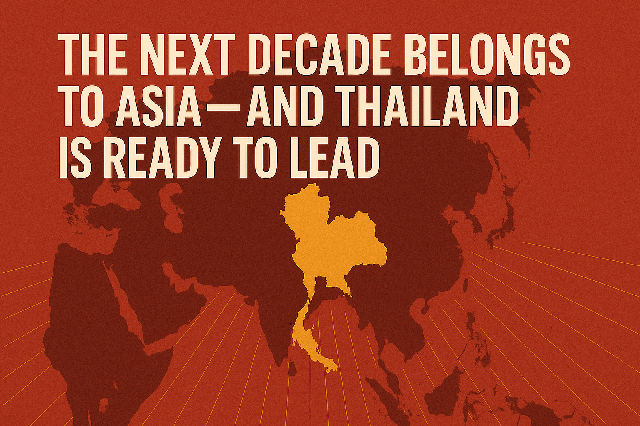In a world often filled with stress, anxiety, and uncertainty, the power of kindness stands out as a beacon of hope. Beyond the warm fuzzies and feel-good moments, acts of kindness have a profound impact on mental health. Research consistently highlights the reciprocal relationship between kindness and well-being, creating a positive ripple effect that extends far beyond the initial act. In this blog, we’ll delve into the various ways kindness influences mental health and why incorporating it into our daily lives can be a game-changer.
- Neurological and Biological Effects:
Kindness triggers a cascade of positive biological responses in our bodies. When we engage in acts of kindness, the brain releases oxytocin, often referred to as the “love hormone” or “bonding hormone.” Oxytocin promotes feelings of trust and connection, fostering a sense of well-being. Additionally, acts of kindness have been linked to the release of endorphins, the body’s natural mood lifters. These neurological and biological responses contribute to a positive mental state, reducing stress and anxiety.
- Enhanced Emotional Well-being:
Practicing kindness is associated with improved emotional well-being. Whether it’s offering a helping hand to a friend in need, expressing gratitude, or simply being there for someone, these acts contribute to a sense of purpose and fulfillment. Studies have shown that individuals who regularly engage in acts of kindness experience lower levels of depression and increased life satisfaction. By cultivating positive emotions through kindness, individuals are better equipped to cope with life’s challenges.
- Social Connection and Support:
Kindness strengthens social bonds, creating a support network that is crucial for mental health. When we extend kindness to others, it fosters a sense of connection and community. Social support is a key factor in resilience and coping with stress. Acts of kindness not only benefit the recipient but also enhance the giver’s social well-being. Building positive relationships through kindness provides a safety net during difficult times, reducing feelings of loneliness and isolation.
- Altruism and a Sense of Purpose:
Engaging in acts of kindness often involves altruistic behavior, where individuals act for the benefit of others without expecting anything in return. Altruism has been linked to a sense of purpose and meaning in life. When we contribute to the well-being of others, it gives our lives greater significance. This sense of purpose is a powerful protective factor against mental health challenges, providing a source of motivation and direction.
- Stress Reduction and Resilience:
Kindness acts as a buffer against stress, promoting resilience in the face of adversity. The positive emotions generated by acts of kindness counteract the physiological effects of stress, such as elevated cortisol levels. Moreover, the supportive social networks formed through kindness serve as a resource during challenging times. By incorporating kindness into our lives, we equip ourselves with the tools needed to navigate stressors more effectively.
- Cognitive Benefits:
Kindness has cognitive benefits that extend beyond emotional well-being. When individuals engage in acts of kindness, they often experience an enhanced sense of self-worth and positive self-perception. This positive self-image contributes to improved mental health outcomes, including greater confidence and a more optimistic outlook on life. Kindness also promotes a shift in perspective, encouraging individuals to focus on the positive aspects of themselves and others.
Kindness Is an Antidote to Stress
Short bursts of stress aren’t bad — your body is primed for them (such as when you’re working on a tight deadline or you run to catch a train you’re late for). Stress, when chronic, however, can increase risk of several health problems, including anxiety and depression, heart disease, sleep problems, and cognitive dysfunction, among other effects, according to Mayo Clinic. One way to ease those feelings of angst? Kindness.
“On an individual level, kindness buffers stress,” Dr. Harding says. “It lowers cortisol and blood pressure, reduces pain, anxiety, depression, and boosts our immune system.”
One review concluded that kindness promotes generosity, connection with others, and a feeling of inclusion, which ultimately can improve your resilience against stress. It’s not that practicing kindness eliminates the stressor itself (it can’t, for instance, make your deadline go away); but regularly practicing kindness bolsters your ability to cope and respond more calmly to stressors that show up.
Ultimately, the authors note that kindness can be used as a tool to manage stress alongside other common practices, such as meditation, exercise, and therapy.
To Your Happiness and Good Health
Kindness is linked to happiness too. Happy people tend to be more motivated to be kind, more able to recognise kindness from others and to recognise kindness in themselves.
Excitingly, the same study that indicates the above findings also showed happiness might be increased simply by counting one’s own acts of kindness for one week. Subsequently, this habit of counting kindnesses also bred more acts of kindness.
So, science seems to say if you want to be happier, be kind!
And how about being kind to ourselves? Well, when it comes to mental health, there’s increased interest in the importance of self-compassion for those of us in therapy or treatment for mental illness. But what about those conducting the therapy? Self-kindness is an often neglected issue among mental health professionals despite the risks of burnout or compassion fatigue, hence a recent recommendation for teaching self-compassion in the training of mental health professionals.
Maybe some of us might have our own compassion fatigue after the last few years of difficulties and living in our current societal circumstances. However the ‘pay-it-forward’ movement that began a few years ago has many positive effects including the breeding of further acts of kindness, thus contributing to a happier, kinder community.
So what kind of kindness has the best effect? Well, it’s less about what and more about how many. Researchers have found being kind to ourselves, to those we know, to those we don’t, even to strangers we never meet, boosts happiness. Even simply noticing kind acts others do around us increases happiness.
Ultimately, the more kind acts we do, and the more kind acts we notice, the happier we are.
Conclusion:
In a world that can sometimes feel overwhelming, the impact of kindness on mental health cannot be overstated. From the neurological and biological responses to the emotional and social benefits, kindness creates a positive ripple effect that reaches every corner of our well-being. By incorporating acts of kindness into our daily lives, we not only contribute to the collective happiness of society but also nurture our own mental health. As we strive to build a more compassionate world, let kindness be the cornerstone upon which we construct a foundation of well-being for ourselves and those around us.
Interesting Reads :








